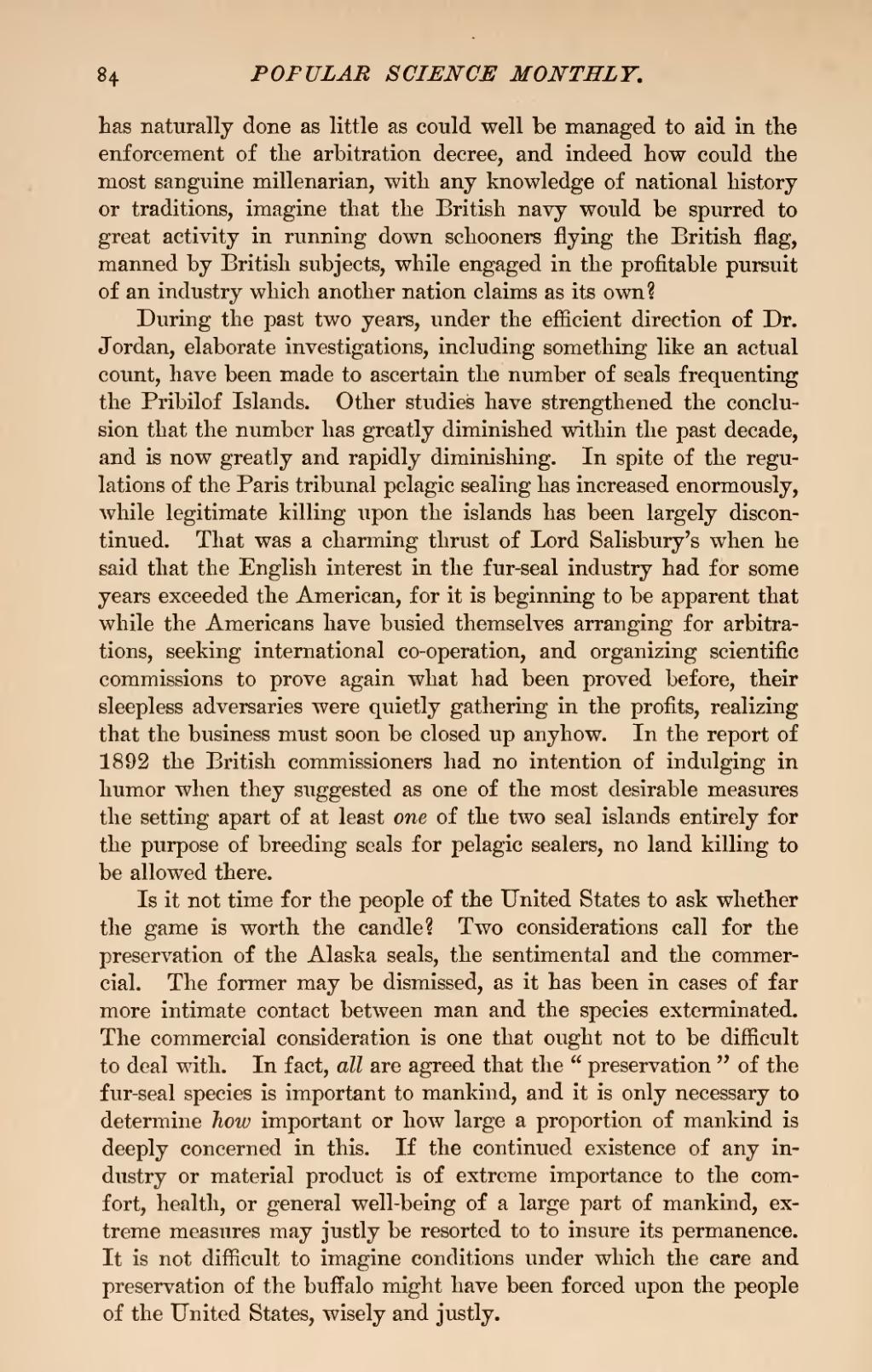has naturally done as little as could well be managed to aid in the enforcement of the arbitration decree, and indeed how could the most sanguine millenarian, with any knowledge of national history or traditions, imagine that the British navy would be spurred to great activity in running down schooners flying the British flag, manned by British subjects, while engaged in the profitable pursuit of an industry which another nation claims as its own?
During the past two years, under the efficient direction of Dr. Jordan, elaborate investigations, including something like an actual count, have been made to ascertain the number of seals frequenting the Pribilof Islands. Other studies have strengthened the conclusion that the number has greatly diminished within the past decade, and is now greatly and rapidly diminishing. In spite of the regulations of the Paris tribunal pelagic sealing has increased enormously, while legitimate killing upon the islands has been largely discontinued. That was a charming thrust of Lord Salisbury's when he said that the English interest in the fur-seal industry had for some years exceeded the American, for it is beginning to be apparent that while the Americans have busied themselves arranging for arbitrations, seeking international co-operation, and organizing scientific commissions to prove again what had been proved before, their sleepless adversaries were quietly gathering in the profits, realizing that the business must soon be closed up anyhow. In the report of 1892 the British commissioners had no intention of indulging in humor when they suggested as one of the most desirable measures the setting apart of at least one of the two seal islands entirely for the purpose of breeding seals for pelagic sealers, no land killing to be allowed there.
Is it not time for the people of the United States to ask whether the game is worth the candle? Two considerations call for the preservation of the Alaska seals, the sentimental and the commercial. The former may be dismissed, as it has been in cases of far more intimate contact between man and the species exterminated. The commercial consideration is one that ought not to be difficult to deal with. In fact, all are agreed that the "preservation" of the fur-seal species is important to mankind, and it is only necessary to determine how important or how large a proportion of mankind is deeply concerned in this. If the continued existence of any industry or material product is of extreme importance to the comfort, health, or general well-being of a large part of mankind, extreme measures may justly be resorted to to insure its permanence. It is not difficult to imagine conditions under which the care and preservation of the buffalo might have been forced upon the people of the United States, wisely and justly.
